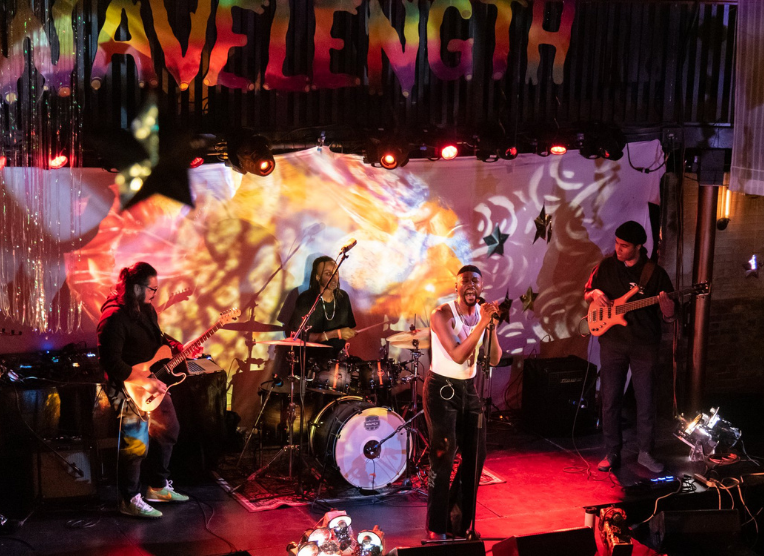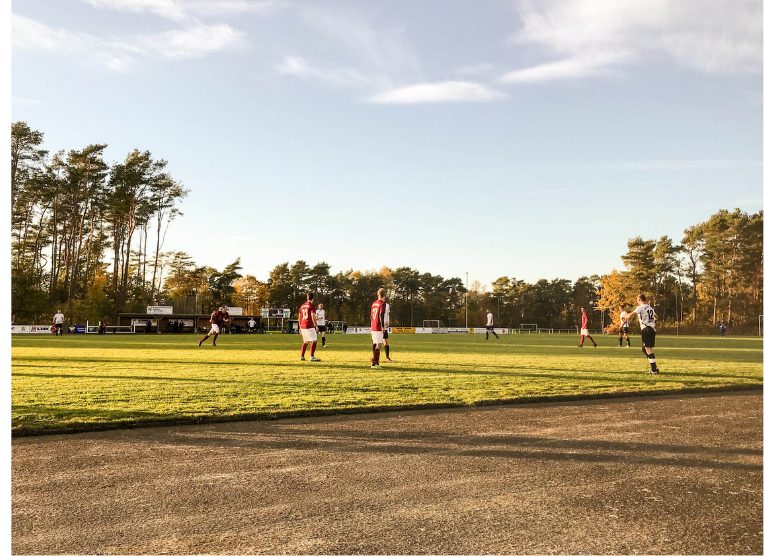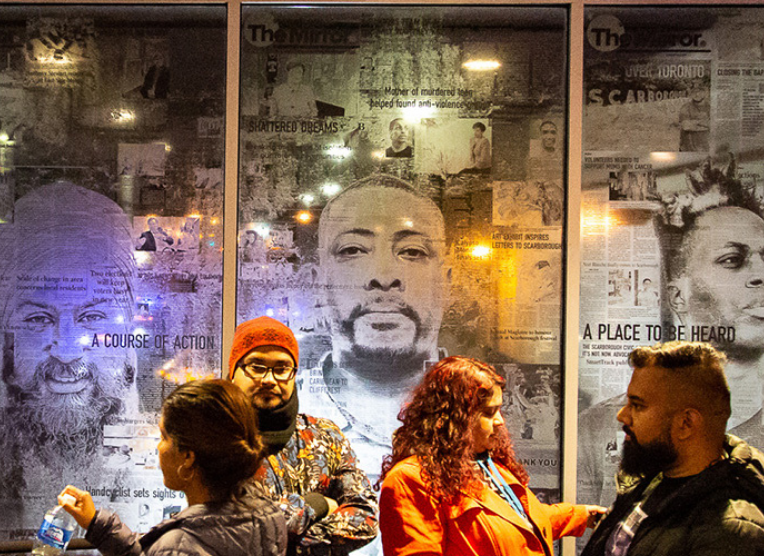Students and clients collaborated on the following projects in the 2021-22 academic year.

The Town of Oakville is located on the shores of Lake Ontario, between Toronto and Hamilton. It is a suburban community of 200,000 predicted to grow to 255,000 by 2031. As per the Town’s Livable Oakville plan, intensification will occur in the Bronte Village area as many older, one-story buildings are primed to be renovated or replaced. In 2021, the Bronte BIA, in partnership with non-profit 8 80 Cities, led a community visioning & engagement initiative called BronteForward! to define what locals and visitors want Bronte to look, feel, taste and smell like in 2040. The results of the visioning exercise served as a foundational and/or reference document for the Town as it implements growth initiatives and/or for developers or businesses as they consider locating in the area. It also enabled the BIA to create a three-year strategic plan that champions, supports and enables the significant transition underway and anticipated. The MUCP team developed a short- and medium-term interim public realm and mobility strategy, best practice guidelines for seniors’ neighbourhoods and quick, cheap and easy tactics to help evolve Bronte as a ’15-minute neighbourhood’ as per outcomes of the BronteForward! visioning process.

Music venues are more than just a room with a stage. They are community centres, cultural incubators, economic drivers, and vessels for our collective memory. Clusters of small music venues can incubate original emerging artists, becoming the leading edge of musical movements, and changing the urban fabric of the city. Yet music venues can also be inequitable, exclusionary, and unhealthy. Few are owned or operated by BIPOC entrepreneurs. Access to coveted performance stages is often given to privileged genres and communities. And venues’ economic dependence on alcohol sales can create an environment with negative consequences for mental health and addiction.
Live music venues in major cities such as Toronto were already facing existential threats prior to COVID-19: gentrification, rising rents, development pressures, dwindling audiences, and the urban exodus of the artists they serve. Many venues have closed their doors permanently under the pandemic. Though the vaccine rollout means an end to the crisis may be in sight, there is an opportunity for a “Great Reset” within the live music venue ecology as well.
This research project explored new models for the organization, operation and programming of Ontario music venues, in order to make them more sustainable and equitable. As the live music sector is large and diverse, the focus was narrowed to discuss small (under 300 person capacity) venues that primarily support new and emerging artists in Toronto and other Ontario cities, while finding the commonalities between these spaces across a wide range of genres, communities and backgrounds. This research project used Toronto and Ontario as case studies and targets for recommendations, showing that this province is a global leader in the creative industries. The result of this research will be a detailed report. Potential beneficiaries included municipalities, property owners and developers, for-profit and non-for-profit concert presenters, existing venue owners/operators, and aspiring DIY organizers and artists.
The Reimagining Music Venues initiative was supported by the MUCP team and consisted of three phases: (1) research, (2) case studies, and (3) designing new models.

Park People is a national charity that helps people activate the power of parks to improve quality of life in Canadian cities.
Through a survey of 27 municipalities across Canada conducted as part of the Canadian City Parks Report, Park People learned that homelessness is a top challenge facing parks departments across the country. However, few municipalities were able to point to examples of inclusive policies or programs they have in place that go beyond displacement-oriented practices of encampment monitoring and clearing. The research also found that defensive design—a strategy that serves to deter and displace people experiencing homelessness from using parks—is prevalent across Canada. In response to a need for more inclusive approaches to homelessness in parks, they released research exploring Canadian case studies of leading practices for park programming and engagement with unhoused communities. The MUCP project built on this work by developing park design guidelines and models that support the dignity and wellbeing of people experiencing homelessness in Canadian city parks.
The students’ design work, alongside Park People’s existing research and resources on park programming and engagement for people experiencing homelessness, contributed to a practical toolkit to guide municipalities, landscape architects, urbanists, and park professionals in building more inclusive parks.

The HousingNowTO volunteer group works to assess the potential for affordable-housing redevelopment on City-owned surplus lands. The group was reviewing the site on the south-east corner of Keele and Finch above a Finch LRT & TTC subway interchange station. The MUCP students were encouraged to develop multiple options, designs and economic proformas to explore the best ways to make use of this constrained transit-oriented development land. Specifically, they reviewed the City of Toronto’s Housing Now & Open Doors programs; identified affordable housing funding sources; reviewed missing middle developments case studies; conducted a site context analysis in order to recommend one (or more) affordable housing development concept with a planning justification and the planning actions needed to accommodate the proposal(s).

Digital infrastructure is becoming an integral part of the City of Toronto’s urban fabric. The accompanying governance required to oversee and manage the technology and data that arises from it requires Toronto adopt a data governance approach to ensure data is protected and trusted. The City was seeking a capstone project related to classifying remote sensor technologies in the public realm and managing the data that they collect. Remote sensors have the potential to help the City manage its resources more efficiently and move closer to a range of environmental, social and economic objectives. Making data collected by remote sensors publicly accessible and secure for others to use also has the potential to further encourage innovation. However, remote sensors also have the potential to raise concerns about surveillance, security and privacy. Developing an approach to categorizing these remote sensor technologies is an important step in ensuring their deployment is respectful of the rules and regulations that govern the collection of data. In this project, the City of Toronto asked the MUCP team to design a best practice approach for a program to classify remote sensor technologies that are used within the public realm, and broadly assess the range of impacts of these technologies.

Accessing high-speed internet is necessary for City of Toronto residents to equitably participate in day to day life. Some Torontonians don’t have this access, with cost and literacy as two of the major barriers. ConnectTO is a Council-supported program to bring access to affordable high-speed internet for all Toronto residents, especially those who are vulnerable and underserved by digital infrastructure.
The City is proposing a capstone project related to the social/resident impacts of ConnectTO. While many of the City’s actions associated with the ConnectTO program relate to physical infrastructure, a primary public policy objective is to decrease the digital divide and provide equitable social and economic opportunities to underserved and vulnerable residents. The capstone project will investigate and evaluate the social impacts of the ConnectTO program on eligible residents.
In this project, the City of Toronto expected the team to design an approach to evaluate the ConnectTO program to determine the its impacts on communities that benefit from ConnectTO. The following requirements and / or questions were considered: a best practice program evaluation methodology was developed; surveys and interviews of eligible residents were designed and implemented; residents participating in and/or impacted by ConnectTO were identified through survey techniques; research questions were developed based on existing primary literature.

The model for outdoor play and educational space at TDSB schools is rooted in traditional low-rise school design on sites with significant amounts of dedicated green / open space. However, increased development pressures and the TDSB’s need to address school maintenance backlogs have led to considerations of incorporating schools into larger new development master plans and / or redevelopment plans, including in the podiums of residential condos as well as office towers.
This requires a complete rethinking of what outdoor play and educational space looks like and how it is used – including considerations of the health and safety of TDSB students. In this project, the MUCP team asked what benchmarks / design principals can be drawn from the experiences in Toronto, throughout Canada, and around the globe to better inform and guide the TDSB in designing outdoor play and educational spaces for schools in mixed-use developments? They then prepared a report that included a literature review, decision-making process (DMP) flow chart, templates / examples that draw from the items above, that show what the decision-making process / outcomes could be in 2-3 sites.

Toronto’s Year of Public Art 2021-2022 celebrated Toronto’s exceptional public art collection and the artists behind it. This initiative supported artists and new artwork that reflects Toronto’s diversity and creates more opportunities for the public to engage with public art in their everyday lives. With a focus on redefining the future of public art across the City of Toronto, the MUCP project aimed to raise awareness and create engagement for public art for ALL Torontonian’s and visitors; find new ways to engage new and old audiences on a broad scale; collect feedback, understand challenges, and chart recommendations for city staff and partners alike to implement.
Based on the combined research and feedback from 75 key stakeholders gathered by Process and ArtworxTO, the MUCP students helped to implement and shape the Evaluation Program’s data collection and analysis processes by reviewing the stakeholder feedback and recommendations; considering economic impacts and results of COVID-19 on public art; shaping the Evaluation Program’s data collection process; drafting an implementation framework for data collection processes and analysis; and creating multi-user friendly assessment tools and systems to periodically collect and measure data to compare against KPI’s for short, mid, and long-term outcomes.

The shift to remote working precipitated by Covid-19 has had huge immediate implications for commercial real estate in all large city central business districts (CBDs). Looking ahead to reopening and the post-COVID world, the outlook for commercial real estate is highly uncertain. Some believe there will be a return to “normal” with workers largely going back to the office, and that in fact public health guidance on distancing will require larger office footprints. Others see this crisis as accelerating a transition to remote and flexible working arrangements, leading many employers to reduce or abandon office space to accommodate worker preference and in pursuit of cost savings. One idea is to convert some office space to residential use.
The Canadian Urban Institute asked the MUCP student team to explore the following questions in the office to residential conversion:
- Where are there opportunities to convert empty or under-utilized office space to residential uses?
- Who are the stakeholders that would need to be engaged?
- What could the future state look like?
- What are the potential obstacles and what are some potential solutions?
- What are the lessons learned for other sites in other Canadian cities?
They did this by identifying two or more sites in two Canadian cities outside Toronto where an empty or underutilized commercial building could potentially be converted to residential use; developing and executing a stakeholder engagement plan; identifying potential obstacles and solutions, showing how the building could be transformed; and identifying lessons learned for other Canadian cities.


